A magical visit to Warner’s Farm for peaches, plums, and apricots.
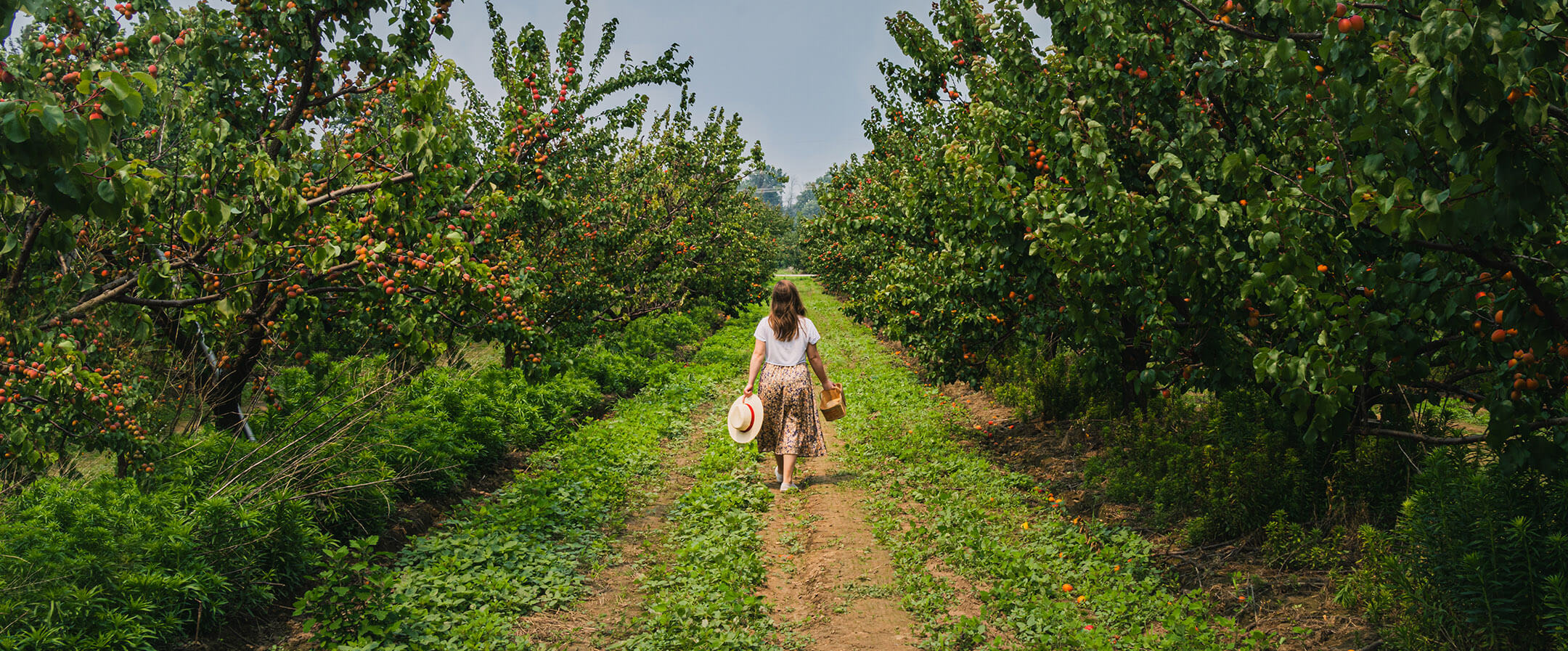
Our team has spent a week touring orchards along the Niagara peninsula, with a most-important stop in Beamsville to visit Torrie at Warner's Farm. Torrie has been one of our mainstay partners for seven seasons now, sending us a crazy variety of stone fruit every summer. His century-old orchard is home to hundreds of stone fruit varieties, not to mention the countless apples, pears, and grapes he grows. A third-generation fruit grower, Torrie grew up among the peach trees in his family's orchard, learning the ropes from his father Fred, who, at nearly 94, still helps out where he can. With his help, Torrie also became one of the first in the region to switch from synthetic pesticides to biocontrols about fifteen years ago. It’s no easy feat considering that the “tender fruit,” as Torrie calls them are literal pest magnets but he's committed to his craft - and especially dedicated to Lufavores.
Check out the photos below for a glimpse at all that sweet fruit Torrie is sending our way.
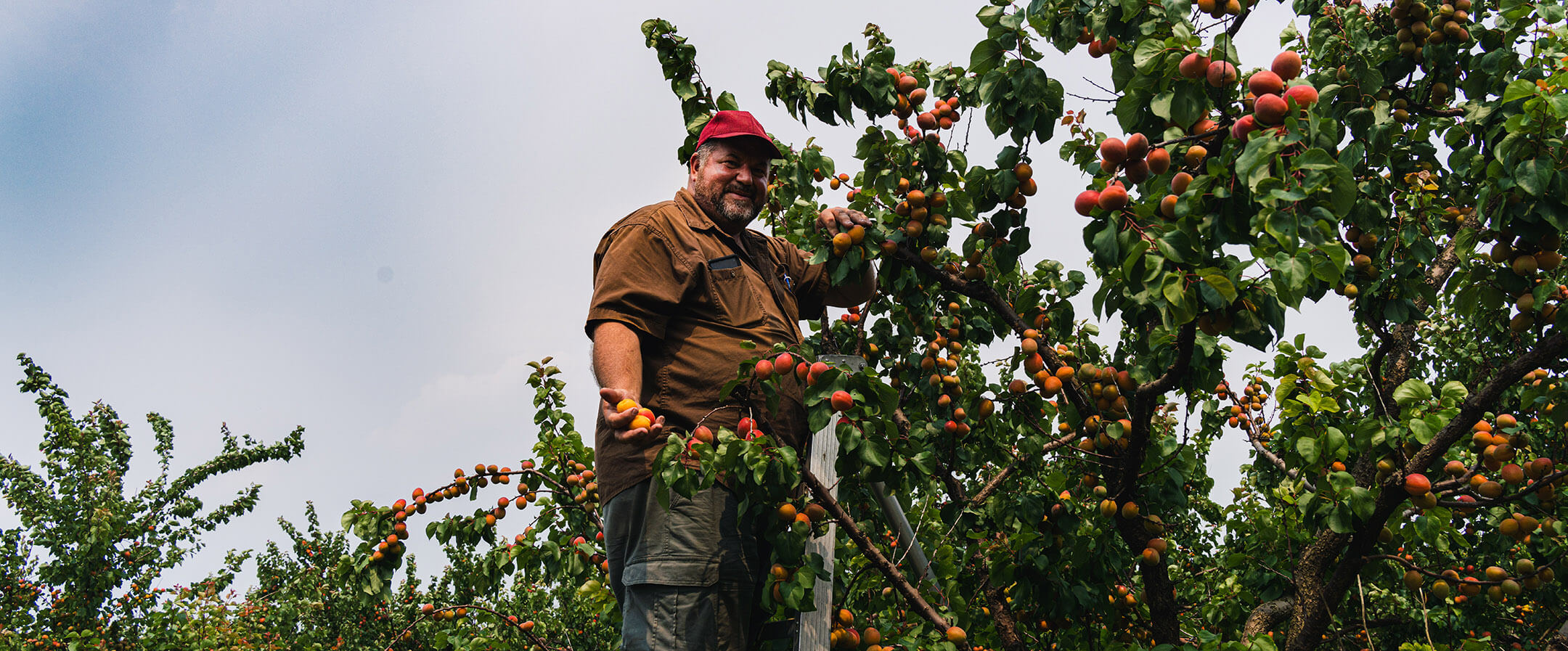
A century-old family orchard, home to three generations of Warners. In 1919, Frank Warner founded Warner’s Farm, planting his first fruit-bearing tree. Two generations later, his grandson Torrie has taken over.
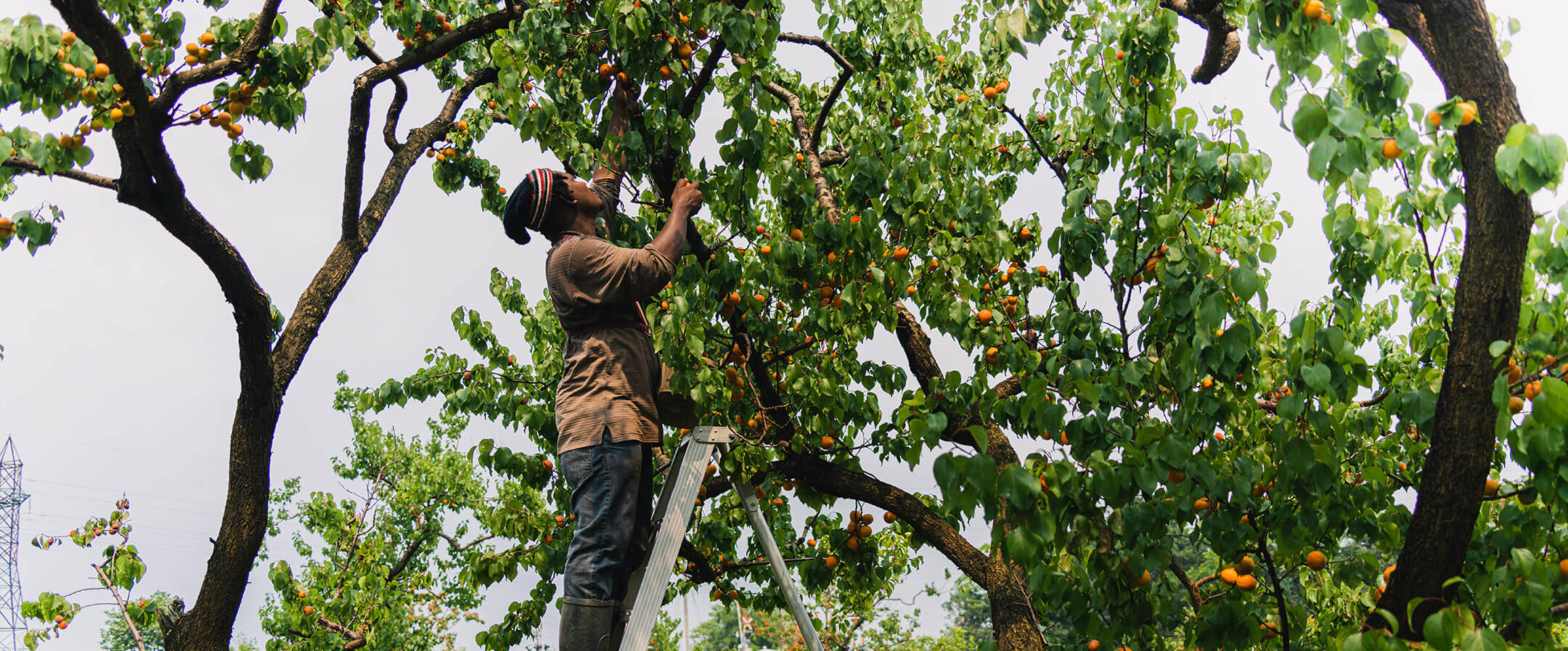
Torrie's team is like family, from both near and far. Travelling from Jamaica to Canada, Trent (busy harvesting apricots above) is following in the footsteps of his great uncle, who worked at Warner's Farm for 30 years before retiring. Torrie told us their main challenge this year was the late arrival of their trusted staff, but they rallied local troops (and Torrie's incredibly active 93 year-old dad, Fred) to help fill in.
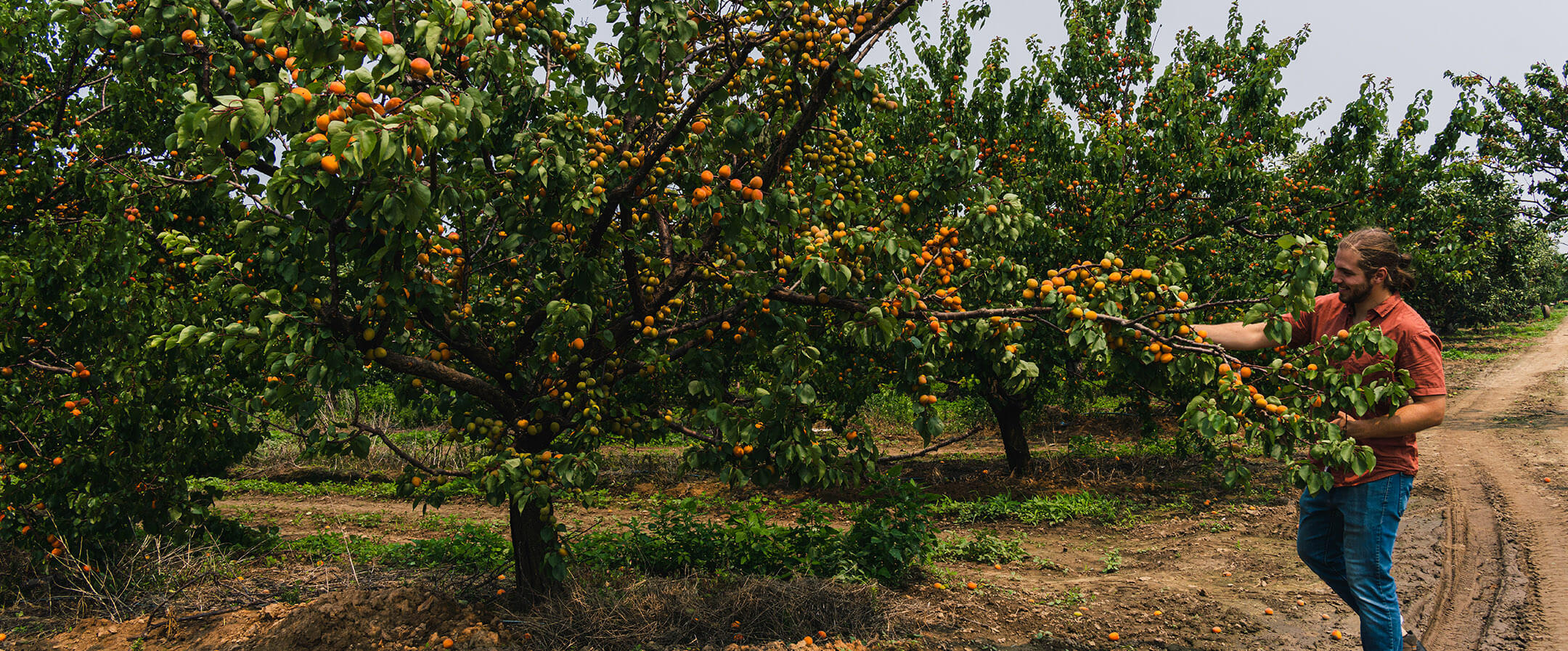
With an exceptionally plentiful season this year, the trees look full even after harvest. You'd never know the tree that Alexis, another member of our sourcing team, is sampling from above had already been visited by the team of twenty pickers.
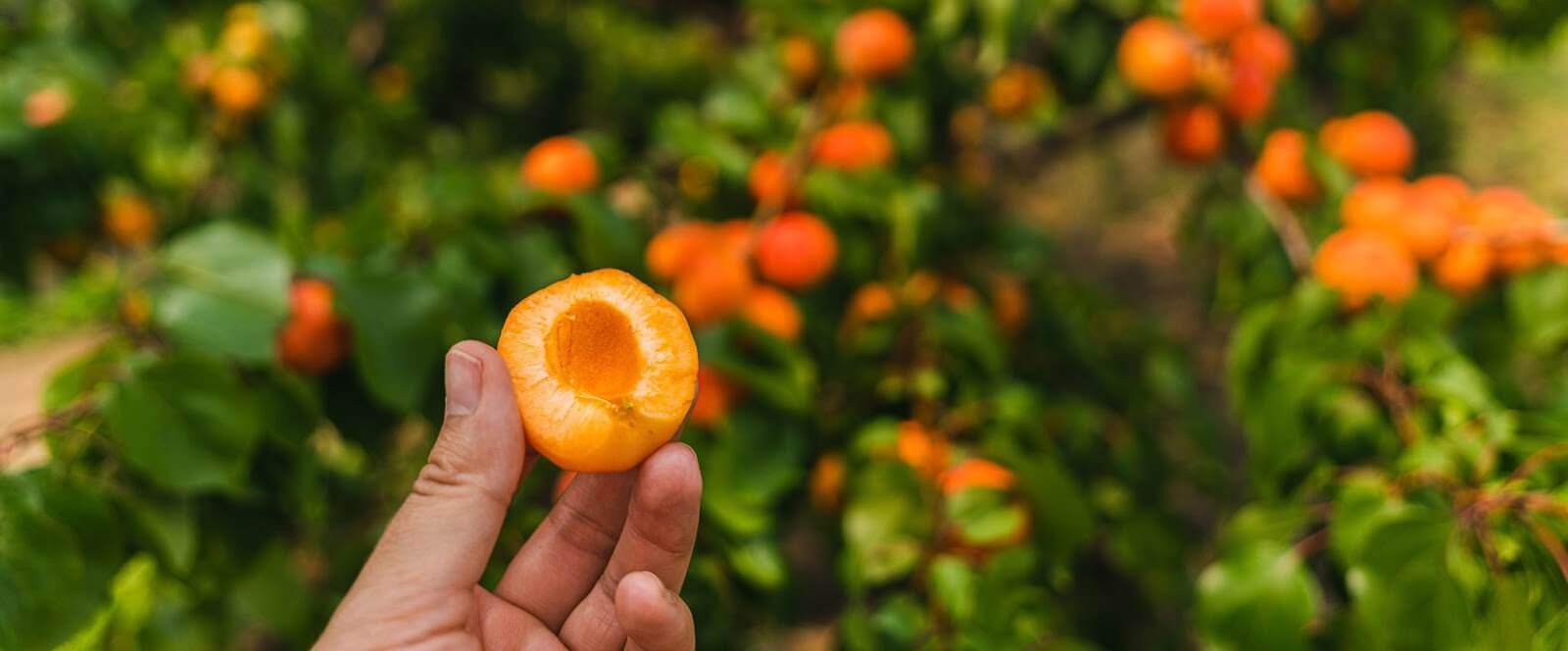
For the first time in three years, there are apricots a'plenty. Being some of the tenderest of the tender fruits, they came within half a degree of being lost to unexpected snowfall early in the season, but we’re lucky to have a bumper crop coming to the Marketplace.
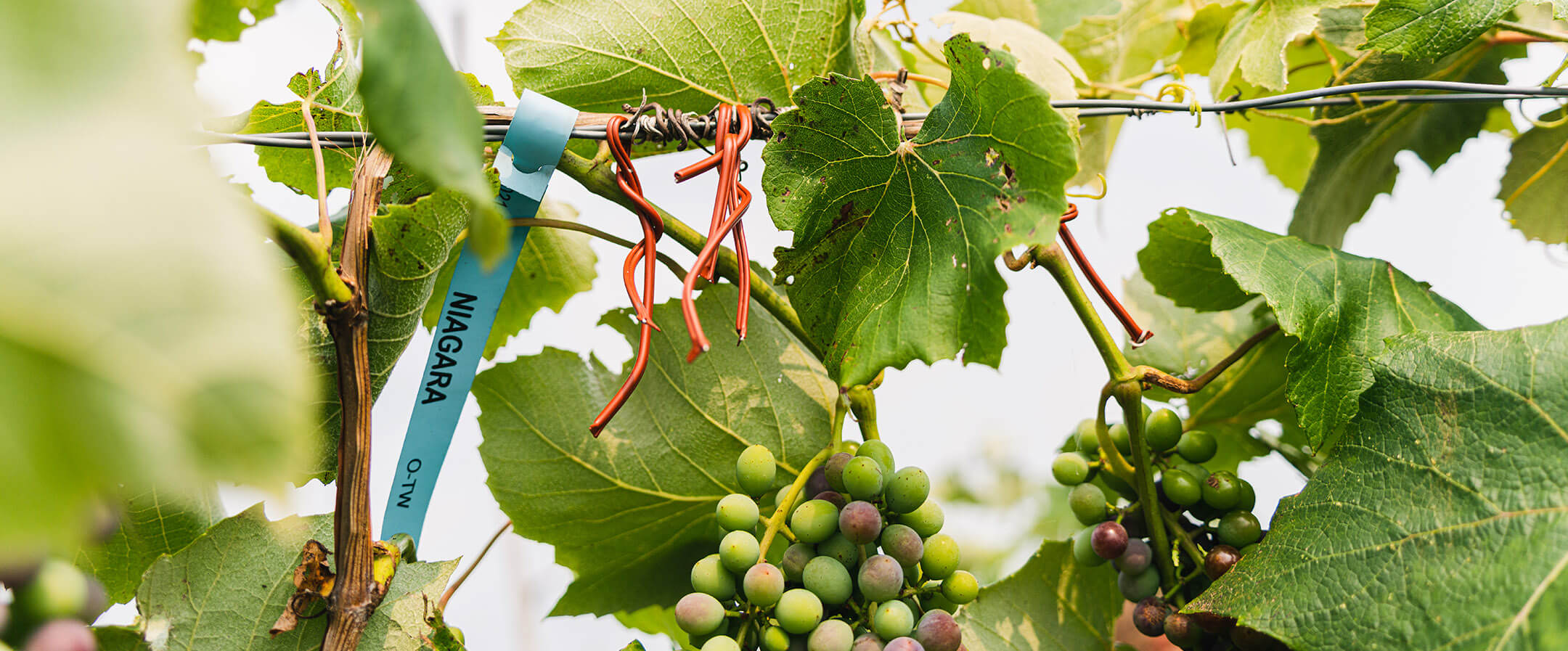
Pheromone ties were the lynchpin in Torrie's move to sustainability. Just over fifteen years ago, Torrie discovered the rust-coloured ties that emit female insect odours and disorient the male insects, disrupting their mating cycle and limiting their spread.
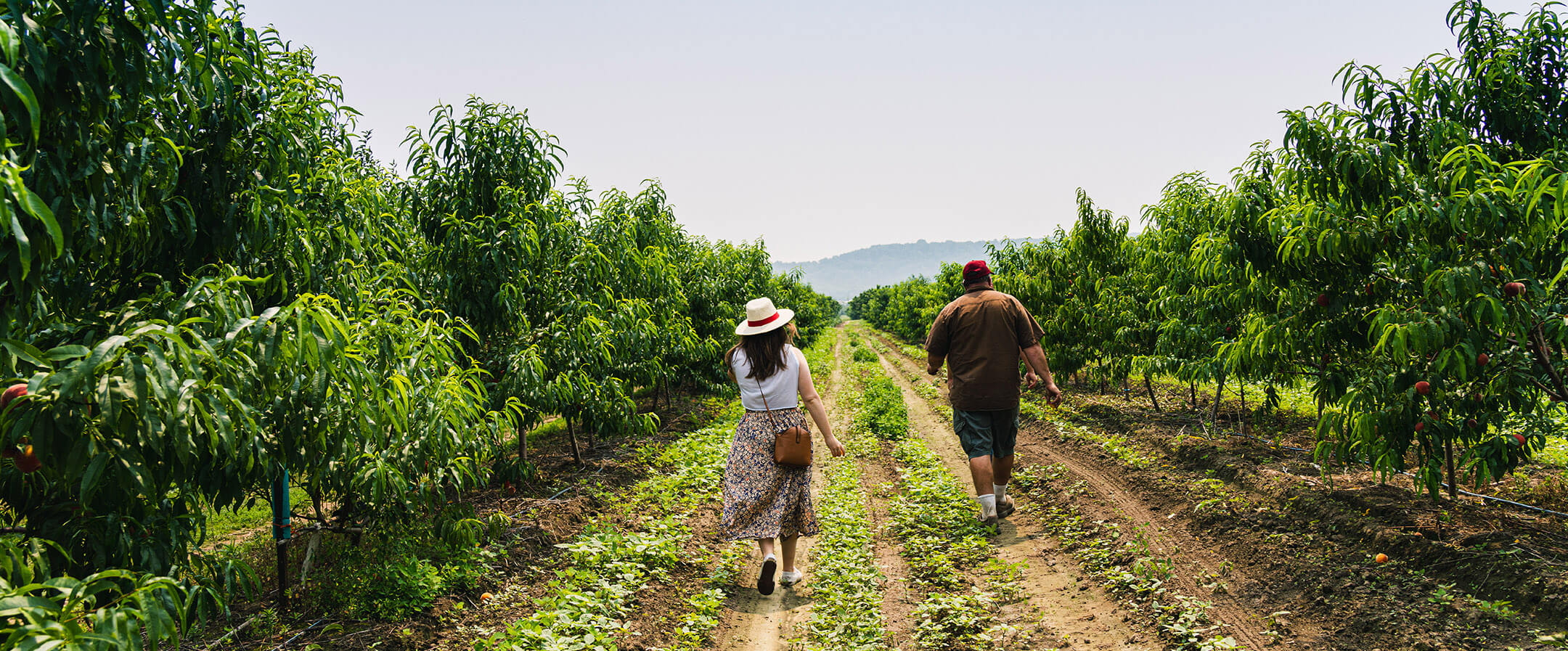
Decades of responsible fruit-growing has made Torrie the go-to guy. Through trial and error, Torrie has taught himself the ropes of sustainable stone fruit cultivation, and now sits on the executive board of the Vineland Growers cooperative (another of our Ontario partners). He also offers to share his knowledge with other area farmers looking to grow more responsibly, that is when he’s not busy giving Anais, another member of our sourcing team (or a story book escapee), a tour of the orchard.
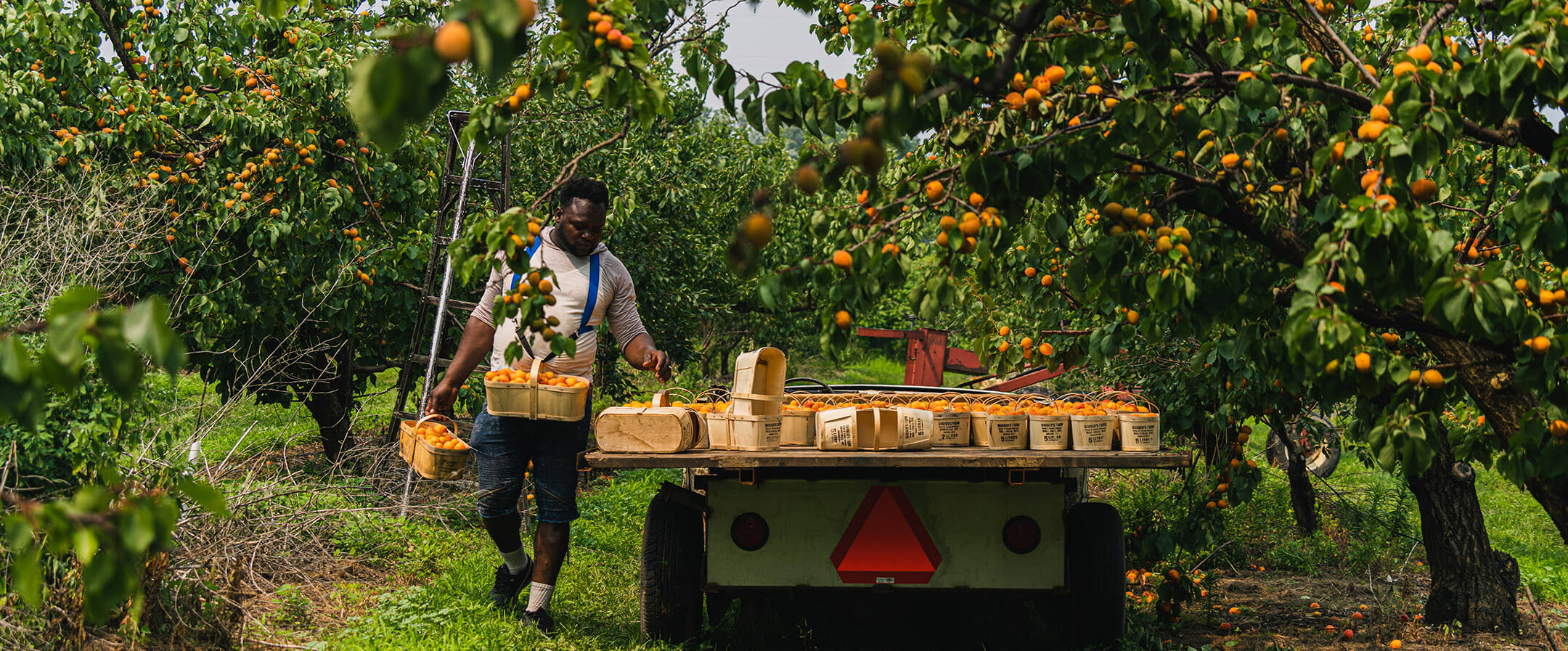
Always curious to experiment with new crops, Torrie keeps surprising us with an ever-growing array of fruits. Each year, with the help of people like Rickie above (who's been working at Warner's for seven seasons), he'll plant ten or so varieties of each fruit and nut tree he wants to test out. This year, he's trying out mulberries, persimmons, Northern kiwis, and pawpaws (a native “tropical” that taste kind of like a mango crossed with a banana).
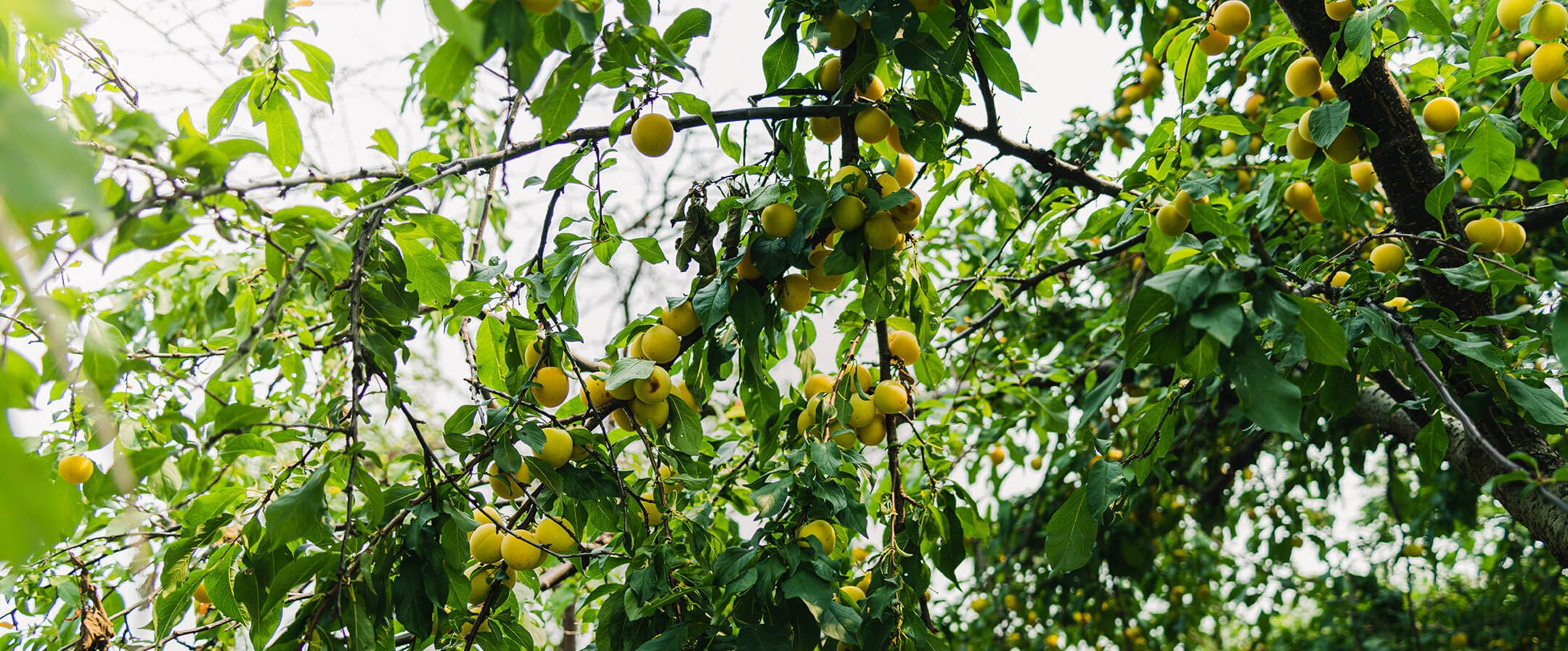
Shiro plums are incoming, alongside peak-harvest peaches, prunes, and apricots. And who knows, maybe we'll be able to enjoy some of Torrie's walnuts for the first time too. A long process, Torrie is excited to finally glean from his various nut trees - certain types like hazelnuts take ten years to begin producing.
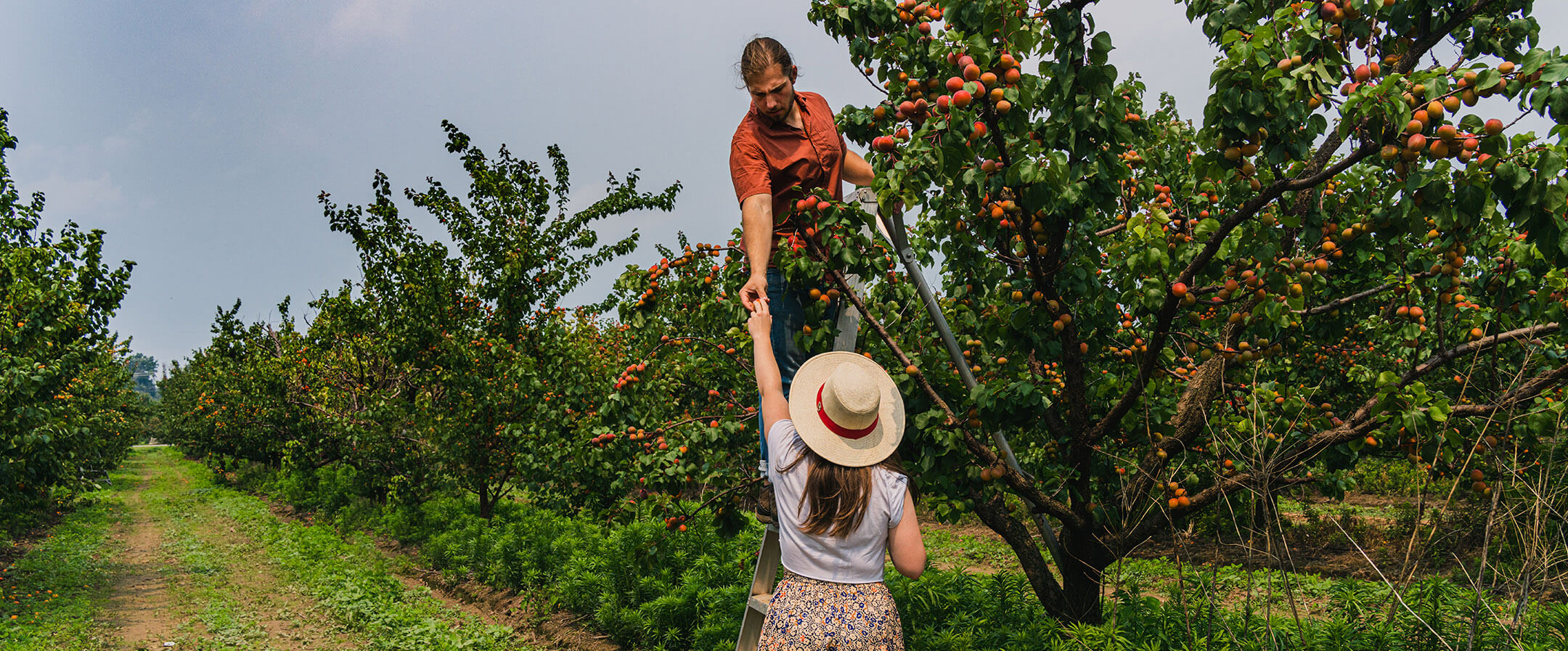
According to Torrie, you "plant pears (and apricots) for your heirs." He might be referring to the literal 100-year-old pear trees at the farm but it's also why he's so committed to growing his fruit responsibly. While other farmers are more worried about production value, Torrie is more interested in taste and how the variety will fit in with his orchard for years to come.
Here’s to yet another fruitful season with Torrie and his fam!
